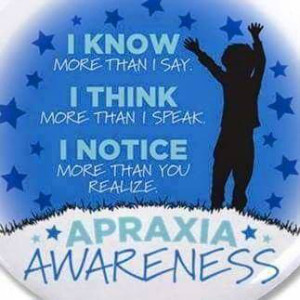 Ah yes, the dreaded social gathering, where the child struggling with CAS will be under the gun to say words out loud. The struggle is real. If you have a child with CAS, you know what I’m talking about. Social gatherings are intense for a child with Childhood Apraxia of Speech.
Ah yes, the dreaded social gathering, where the child struggling with CAS will be under the gun to say words out loud. The struggle is real. If you have a child with CAS, you know what I’m talking about. Social gatherings are intense for a child with Childhood Apraxia of Speech.
My daughter is blessed to be surrounded by the most loving and caring family and friends. All of her aunts, uncles, grandparents, great aunts and great uncles, church friends, everyone — they love her to pieces. I’m so thankful that we have a family who is loving, accepting, kind, and wise. I realize that not everyone has this same blessing. I also realize that acceptance does not always equal understanding and knowledge. My family and friends have, fortunately, sought to understand Sophie’s diagnosis and celebrate her growth with us continually. Still, I realize that sometimes significant people a child’s life are just at a loss as to what to do with said child who has CAS because he or she can’t communicate the way children his/her age typically can. How can I connect with this child whom I love in the deepest way possible? How can we communicate and bond without speech? Why does this child struggle so much to speak to me when we are together? That last question is one I hope to shed some more light on, which will hopefully also shed light on the first two.
I’ll get right to the answer in case you don’t want to finish reading this: Social settings can often create anxiety for children with apraxia of speech, which makes speaking even more difficult than it already is. Imagine with me; put yourself in their shoes. They are around a bunch of people who want to talk to them and who are asking them lots of well-intentioned, easy questions. They want to answer; they know the answer. But the nerves get the best of them. Even adults can become nervous in social situations which are part of their everyday routine. Imagine for a child who struggles to speak how that pressure becomes magnified. The closest analogy that I can come up with that helps me imagine how Sophie must feel in social settings is to imagine if I were invited to a social gathering of native French speakers. I took four years of French, but my understanding is limited, and my speaking ability is even further limited. Even back in high school (more than 10 years ago!) when I spoke French much better than I could now, I still felt anxiety over whether or not I was pronouncing words correctly, if I would understand the other person, if I would be understood, if I would remember the correct word when i needed it. I would probably feel like I would have very little to offer in that gathering. So imagine going to such a party, the native language of your choice, and the anxiety that you would feel. It certainly would not help you communicative abilities in that foreign language. The pressure would dam up your abilities even more than the natural language barrier did in the first place. To me, that’s what Sophie experiences when she is in a social setting, except that she does indeed understand every word that is spoken. But in her speech, there’s the concern of being understood, pronouncing things correctly, remembering the right word, etc. As an adult, I would find the pressure of this foreign language gathering hard to cope with. My almost-four-year-old certainly wouldn’t be able to cope any better.
I am in no way advocating that family members or friends shouldn’t engage children with apraxia. But, I think that it is helpful to take cues from the parents about how to make the child most comfortable. For instance, my daughter knows that I understand most all of her approximations, so she’s more comfortable trying to talk to others when I’m around because I can help her. In addition, for my daughter (but maybe not for those who have sensory issues), sometimes playing or touch is a better way to connect than a continual pursuit for dialogue. The hardest Sophie laughed this holiday season was when her grandparents tossed her up in the air and tickled her. She was having a ball, and the words began to flow more easily as she had fun and her nerves eased.
Regardless of which way is best for engaging a child with apraxia, acceptance is key. Child and parent alike need to experience acceptance regardless of what the child is comfortable with. The best thing that extended family members and friends can do is show love, support, and acceptance. The parents of a child with apraxia are desperately desiring their child to speak, for him or her to be accepted and to engage with peers and family members. Feeling judged because that’s not happening YET helps nothing. (We are fortunate not to have experienced that judgment, but I know it’s out there.) If you know a child with CAS, I would encourage you to openly dialogue with the child’s parents about the speech disorder, to understand what that child you love is experiencing, and to find out how to best connect with that sweet child who struggles with speech. I guarantee that he wants to connect with you just as much as you want to connect with him; he just may not know how to do that. Find a way to come down to his level, find other ways to bond, and you’ll be surprised to see that you don’t really even need speech at all to make that connection.
